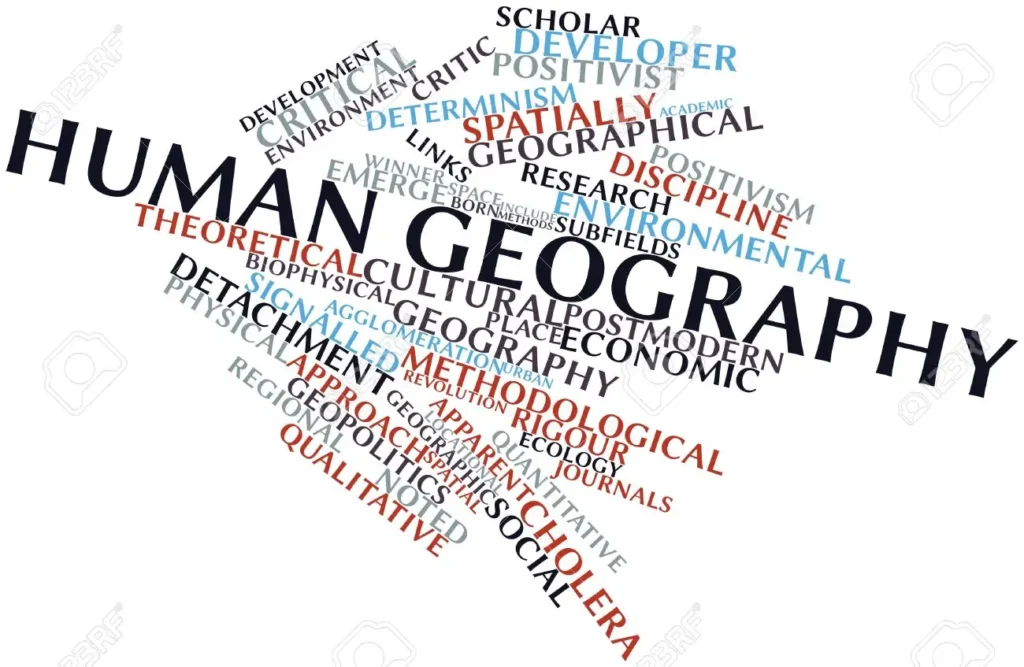Human Geography is the study of human activity and its impact on the Earth’s physical and cultural environments. It is a branch of geography that focuses on the patterns and processes of human behavior and their relationships with the natural world, including the physical and human geography of a particular place or region. Human geographers study a range of topics, including migration, urbanization, globalization, culture, religion, language, politics, economics, and the environment. The goal of human geography is to understand the interactions between humans and their physical and cultural environments, and how these interactions shape the world we live in.
- Makinder’s Heartland Theory
- Rimland Theory
- Central place theory
- Von thunen theory of agricultural location
Human Geography for upsc

Human geography is one of the subjects studied in the UPSC (Union Public Service Commission) Civil Services Examination in India. The UPSC syllabus for human geography covers a range of topics related to the study of human activities and their impact on the environment.
Some of the key topics that are covered in the human geography syllabus for the UPSC examination include:
- Geographical perspective on human society and culture
- Population geography, including population growth and distribution
- Economic geography, including agriculture, industry, and service sector
- Urban geography, including urbanization, urban systems, and planning
- Political geography, including the study of nation-states, borders, and globalization
- Environmental geography, including environmental degradation, sustainability, and climate change
- Historical geography, including the evolution of human settlements and cultural landscapes
It’s important for UPSC aspirants to have a comprehensive understanding of these topics and how they interact with each other. Additionally, UPSC examiners often ask questions that require the candidate to apply their knowledge of human geography to real-world scenarios.
Human Geography model theory
Human geography models are theoretical frameworks that help explain and understand various aspects of human activity and their relationship with the environment. They provide a structured approach for analyzing and synthesizing information about humans geography. The following are some of the major theories used in human’s geography:
Cultural Ecology:
This theory focuses on the relationship between human societies and their natural environments. It argues that human behavior is shaped by the resources and challenges that the environment provides.
Political Ecology:
This theory examines the interaction between political and economic systems, and their impact on the environment. It is concerned with the unequal distribution of resources and the unequal distribution of environmental hazards.
Urban Political Ecology:
This theory is an extension of political ecology, which focuses on the study of cities and urban areas. It examines the political and economic factors that shape urban environments and the distribution of environmental hazards within urban areas.
Marxist Geography:
This theory uses Marxist ideology to analyze the relationship between geography, capitalism, and social inequality. It argues that capitalism leads to exploitation of workers and environmental degradation.
Feminist Geography:
This theory applies feminist perspectives to the study of geography, including the impact of gender on the distribution of resources and environmental hazards.
World-Systems Theory:
This theory views the world as a single interdependent system, divided into core, semi-peripheral, and peripheral regions. It argues that the core regions control and exploit the peripheral regions for their own gain.
Each of these theories provides a unique perspective on geography, and many geographers use a combination of these theories in their work. However, it’s important to keep in mind that theories are not absolute truths and can be challenged and modified over time as new data and evidence become available.

Very good
Too good